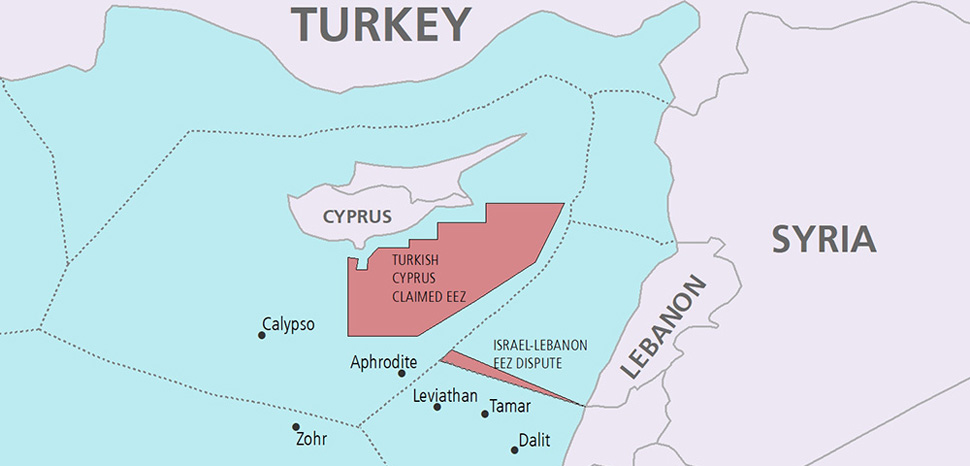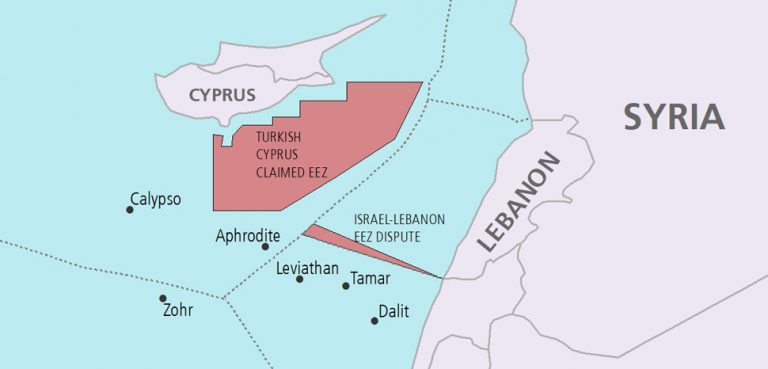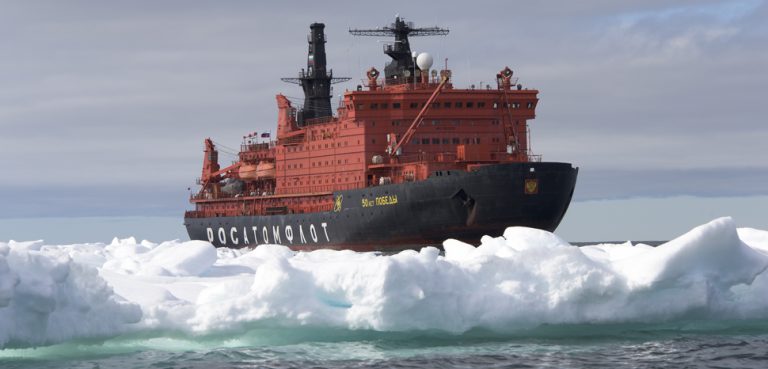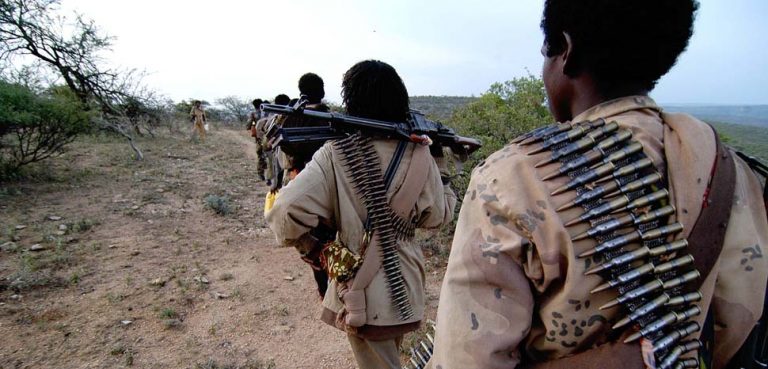Tensions in the Eastern Mediterranean have begun to heat up over the last year, in no small part due to the discovery of a significant new reserve of hydrocarbons. Central to this dispute is the fate of Cyprus – a country long riven by a political dispute. But while this latest discovery risks escalating the situation, the new resources also represent an opportunity to re-open negotiations around the re-unification of Cyprus.
In February 2018, the discovery of a large gas reserve in the Eastern Mediterranean thrust Cyprus into the center of an emerging geopolitical crisis. The gas field falls within the Exclusive Economic Zone (EEZ) of Cyprus, but Turkey – which does not recognize Cypriot claims – has instead exercised its own claim to the area. Turkey has gone so far to enforce this claim by deploying both military vessels to the area and beginning the process of drilling for the hydrocarbons.
Cyprus has been an independent nation since 1960 and is demographically divided between Greek Cypriots and Turkish Cypriots. Tensions between these groups eventually escalated into war, and the island remains divided to this day. Since 1974, many efforts have been made to resolve the dispute in Cyprus, but despite persistent negotiations, all efforts have come up short, with the most recent attempt to reach an agreement collapsing in 2017.
The latest developments in the Mediterranean risk further tensions between the two groups, but have also opened a path toward successful peace talks. The added issue of hydrocarbon ownerships raises the stakes for those on the island and creates new incentives for both Turkish and Greek Cypriots to achieve a peace settlement and power-sharing agreement. Even more importantly, the addition of the hydrocarbons debacle creates a new item that can be bundled and traded by the two sides. Negotiations experts often point to the concept of adding new issues – or “bundling” – as a way to break impasse. By linking together otherwise indirectly related issues, value can be created for all parties.
Bundling enables a negotiation tradeoff that may make other concessions more palatable. In the case of Cyprus, Greek or Turkish leaders may be willing to swallow political concessions if they their constituents are guaranteed economic proceeds from hydrocarbon development. This also makes the pitch to constituents easier for politicians – concessions that were once deemed impossible can potentially be traded away for new economic benefits that were previously unavailable. In this case, bundling hydrocarbons with political reconciliation between the two sides may allow negotiators to “expand the pie” and create more value for all parties involved.
Similarly, Turkey’s actions in the region also present an opportunity for negotiators by impacting the alternatives that Cypriot leaders have to a peace deal. Turkey’s claims and attempts at exploiting the hydrocarbons presents a ticking clock element to negotiations and weakens the alternatives to Cypriot leaders who risk losing access to the fields if Turkey is able to establish itself. Alternatively, Greek Cypriot leaders can consider working with Turkey to give them access to the field in a manner that would legalize their actions under international law. This may help soften Turkey’s position and weaken support for the status quo, creating a new incentive for Turkish Cypriots to reach a deal.
The timing of this discovery does, however, make the prospects for peace harder, if only because the typical third-party brokers are in no position to be helpful. The United Kingdom, despite its colonial history over the island and its continued military presence, has long been reluctant to involve itself in the dispute on even the best of days, despite their commitment to guarantee Cypriot independence. With the looming Brexit deadline and political strife at home, the chances of the UK suddenly choosing to take an active role are functionally zero. Likewise, the United States is ill-positioned to take the lead in brokering negotiations as recent tensions with Turkey over the purchase of a Russian air defense system has soured the US’ ability to appear neutral and credible to Turks. This means that the UN, with some helpful prodding from the EU, will need to take the lead – a choice that carries its own difficulties due to the string of failed talks the UN has previously led. There is a precedent for UN involvement – the UN supervises the ceasefire lines on the island and the UN has already served in a mediator role when Cypriot leaders have talked peace in the past.
There are no guarantees that bundling these issues together will break the impasse that has long plagued Cyprus. Even if parties can agree to incorporate ownership of hydrocarbons into broader peace discussions, it is possible that entrenched politics on both sides of the Green Line – as well as Turkish national interests – may block any meaningful progress. Still, by bringing more issues to the table there is a chance for the two Cypriot governments and the UN to create the necessary tradeoffs for a grand bargain to move forward. The willingness of Cypriot leaders from both the Greek and Turkish sides to cooperate is a promising start. If carefully managed, the hydrocarbon discovery could prove to be far from a flashpoint and instead become the linchpin for peace in a region where it has long remained elusive.
The views expressed in this article belongs to the author alone and does not necessarily reflect those of any institutions with which the author is associated with or Geopoliticalmonitor.com.




